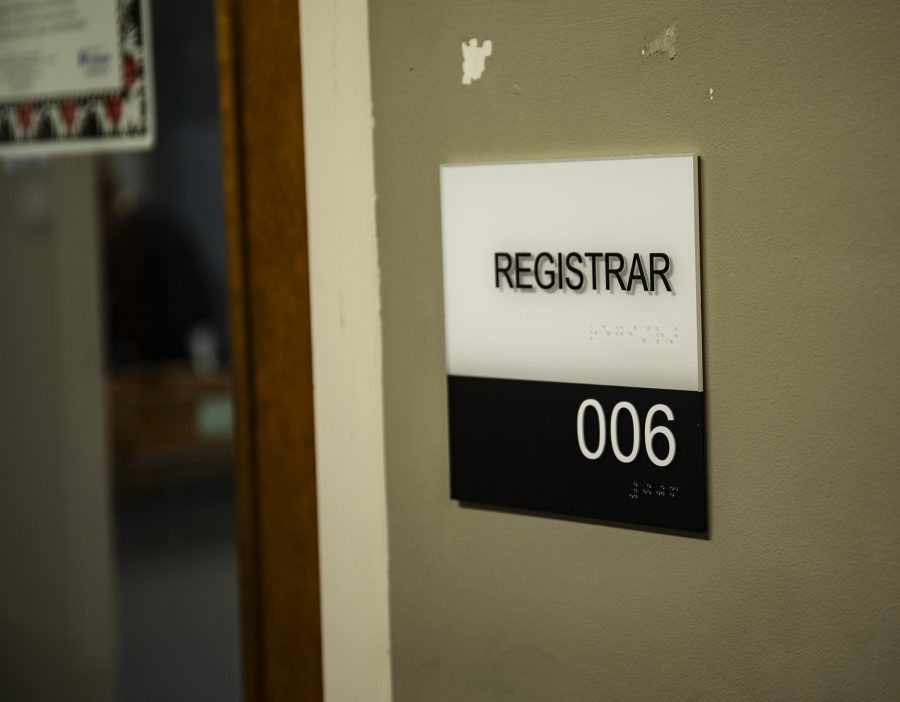Today the college announced that all students will be allowed to take any course on a pass/fail grade basis for this semester only. The decision, which was distributed via a campus-wide email from President Alison Byerly and Provost John Meier, was made in response to the college’s transition to online instruction instigated by the ongoing COVID-19 pandemic.
Students who elect to take one or more pass/fail classes will have an electronic request form available to them “on or about March 30,” according to the policy details on the Provost’s website.
“[W]hat we have done is to simply modify an existing college policy on pass/fail grading to try to give students more flexibility this semester,” professor Lawrence Malinconico, who was a member of the working group that produced the policy change proposal, wrote in an email.
The policy change will allow students to transition some or all of their courses to pass/fail any time between March 30 and May 1. Courses taken pass/fail this semester will not count towards the four pass/fail courses students are granted during their academic career at Lafayette.
The Provost’s website noted that this window of time is intended to relieve students of “the stress of quickly and possibly prematurely committing to either of the grade options” and will allow them to “make an informed decision on the final grade method for each of their courses.”
Classes taken as pass/fail this semester will still count towards majors, minors, and the common course of study, according to the FAQ posted on the college’s website. Students already enrolled in a class as pass/fail will not have the option of switching to a letter grade in lieu of a passing mark, however.
The announcement noted that students are “strongly encouraged” to consult their academic advisor before choosing to take a course for a pass/fail grade. Faculty will be able to see which students have elected to take their class pass/fail when they submit final grades through Banner Self Service, but they will not know before then unless informed by the student.
“I think that advising our students is a significant part of [the faculty’s] responsibility and like every other adjustment that we all have to make this semester, increased attention to our student’s concerns will be one of those,” Malinconico wrote.
Students who wish to retain the letter grade option will still be allowed to do so under the flexible grading policy. Seniors who need to improve their GPA in order to graduate as well as those wishing to improve their cumulative GPA, break the threshold for Latin honors, or prefer not to have a pass/fail mark on their transcript will continue to have the opportunity to earn a letter grade.
Many students considering continuing their education after Lafayette worried that having a pass/fail mark on their transcript may hurt their applications into graduate or medical school.
Mike van Ness ‘20, a math major who will be attending graduate school next year in statistics, said that he is a “fan of the optional pass/fail policy.” He noted that graduate programs often examine grades for high-level courses when making decisions about applicants, and that taking these courses as pass/fail may hurt students’ chances of acceptance.
It is currently unclear whether these programs will accommodate for the extenuating circumstances caused by the coronavirus. Some schools, like MIT, have opted for a forced pass/fail policy for their undergraduate students for every class. The college recommended in the policy change announcement that students consult their pre-professional advisors before switching any classes to pass/fail.
“I do know from our research that graduate and professional programs are asking the same question,” Malinconico wrote. “Fundamentally I think everyone understands that these are difficult times and there are obviously extenuating circumstances this semester.”
Students at colleges across the country have been pushing for a more forgiving grading system during the COVID-19 pandemic, and Lafayette was no exception. An online petition started last Wednesday urging the college to consider an alternate grading system received over 1,300 signatures, including support from faculty members as well as students.
The petition said that moving away from letter grades would help students “put energy toward mental and physical health during this stressful time,” as well as allow faculty to “focus on the pedagogical experience without the pressures of grading.”
“Grades are a reflection of the conditions around us…and being at home is less than ideal for many of us,” the petition read.
The policy change proposal was initially written by a small working group who apprised the Academic Progress Committee (APC) and the Curriculum and Educational Policy Committee (CEP) of their findings earlier this week. The APC and CEP discussed alternative solutions before voting unanimously to present their “significant advice” for the flexible grade policy to the administration.
Malinconico noted that other schools’ decisions ranged from “keeping strict letter-grade policies” to a “credit/no credit option.” Others, like MIT, are enforcing a strictly pass/fail curriculum. Lafayette’s policy, according to the announcement email, was aimed at finding a “middle ground” between these solutions.
According to Registrar Kara Howe, the large window for submitting pass/fail applications will not only help students come to a “well-informed decision,” it will also help the office process the anticipated influx of applications.
“[T]here is typically a very low number of students electing pass/fail, which allows one-by-one processing of the requests,” Howe wrote in an email. “We expect a much larger number of requests under the current policy, and are working to put in place processes to support the anticipated increase while maintaining data integrity and timeliness of the grade submission process.”
“This semester is presenting an unusual set of circumstances for all of us…and I expect that we will all need to make adjustments as we move through the coming weeks,” she added. “We really can’t anticipate the number of requests that we receive, so [we will] do our best to handle the volume!”

























































































































